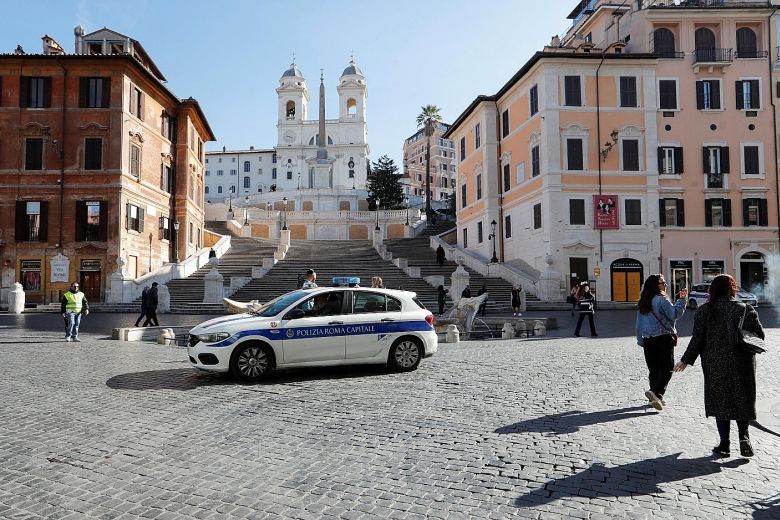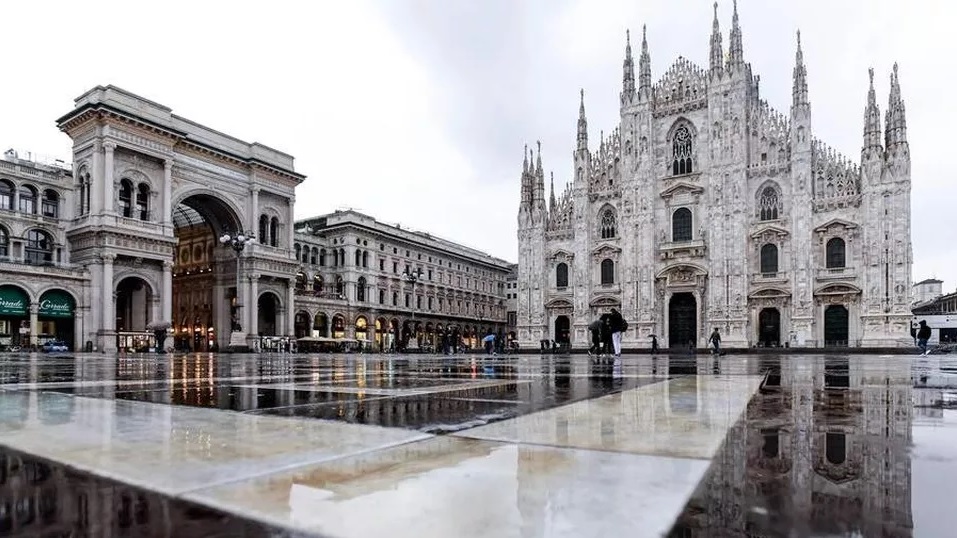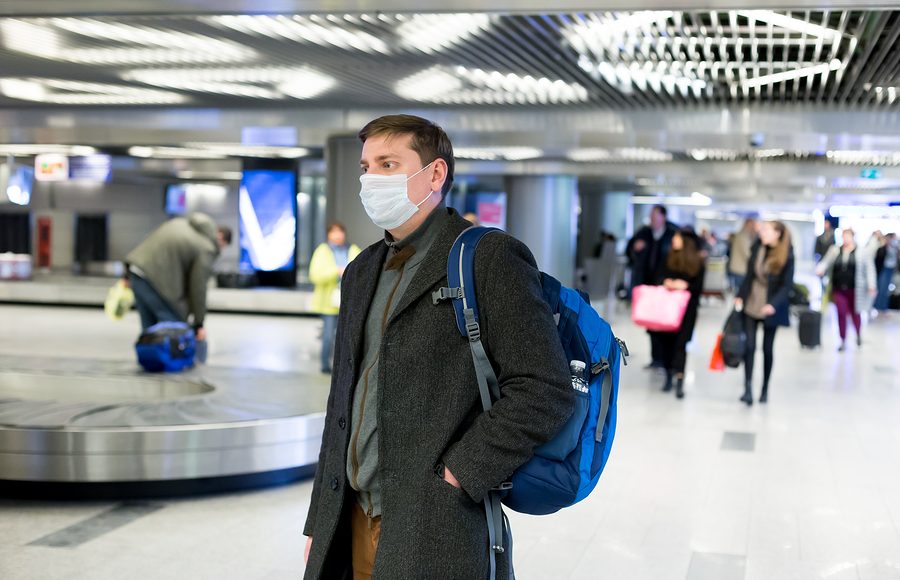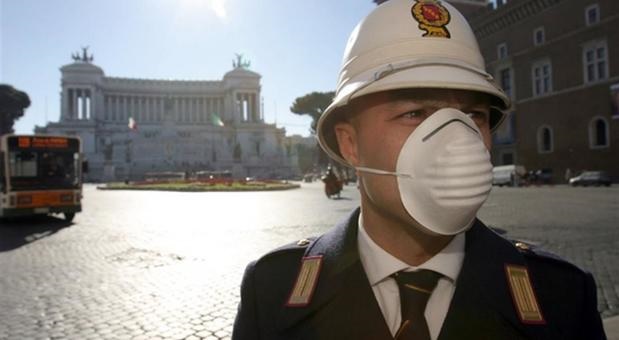By Enza Ferreri
This article was published on
Italy Travel Ideas
It’s so fashionable and radical-chic to blame man, what he creates and what he produces for any environmental disaster, real or imagined, these days. Pollution and anthropogenic climate change spring to mind.
During the coronavirus lockdown, which in Italy has strongly reduced car traffic in cities and country, these theories of how our air is affected by motor-caused pollution can be put to test.
And surprise, shock, maybe horror! It’s not what we thought.
Italy’s ARPA, Regional Agency for Environmental Protection, with control units located all over Italy monitors in real time the quality of the atmosphere and publishes the findings daily.
An almost incredible picture has emerged. In the overwhelming majority of Italian cities, the air quality deteriorated after ten days of "zero traffic" due to the lockdown imposed by the government resulting in an absolute lack of cars and reflected in images of deserted cities like in a post-nuclear bombing era seen in movies.
A world without one car, a test that could never have been carried out without an exceptional event such as the Covid-19 pandemic. Everywhere there is more or less the same picture, from Turin to Naples, going through Milan and Rome. All the pollutants under control by ARPA have not decreased, even during long periods without traffic. If anything, the pollutants have gone up.
Rome: Traffic Zero, Particulate Matter Up
Let’s start from
Rome, certainly a unique city due to its perennial history of civilisation always, like the Arab Phoenix from its ashes, being born again, not to mention its immense heritage of architecture and art masterpieces.
The atmosphere is full of microscopic particles of solid or liquid matter suspended in the air called particulate matter (PM), which is a very insidious and dangerous pollutant due to its nano-dimensions. The level of PM is considered an important indicator of air pollution.
It was known that all these fine particles in the air are not caused only by human activity but are of natural origin. But the constant drumbeat of environmentalism has led to an overestimation of their human cause.
In the Eternal City, particulates, nitrogen dioxide and ozone in the last few days have had values significantly higher than those of the previous week. With cars completely eliminated, showing that much pollution is not due to car traffic. If vehicles stop circulating, the situation does not improve.
It was not possible to organise a total block of traffic for several weeks to really see what would have happened. Now the coronavirus pandemic has brought to a halt all activities, creating a gigantic open-air laboratory. A joy for scientists and researchers to get an unrepeatable scenario to analyse.
In Rome, a week after the total lockdown ordered by Prime Minister Giuseppe Conte, the amount of fine dust in the air had increased.
After an accurate study of Rome district by district dated April 16 and covering more than a month in full lockdown, the Lazio Region section of ARPA published a 44-page report from which the experts’ embarrassment emerges. They couldn’t imagine this result: particulates don’t seem to care at all about what man does, they carry on regardless.
PM 10 is higher in March 2020 in every corner of the city than in March 2016 (the year most similar to 2020 from a meteorological point of view). In some recent days it has been almost double that of previous years.
The last four lines of the 44-page dossier, full of tables, are: «The particular situation generated by Covid-19 represents an event that has never occurred before, which will allow to deepen the study of air quality and will provide useful elements for the evaluation of the short and medium term measures that are adopted by the various authorities for the reduction of pollution ".
The hint is: if this is the reality, many things must be reviewed.
Milan and Po Valley: Data Deny the Anti-Pollution Effect of Lockdown
Milan, capital of the Lombardy Region, Italy's second city and industrial capital, has never been so car-free and yet the pollution level of its air has not changed.
The large amount of particulate matter (especially PM10) is due to the arrival of strong winds from the east, experts write. These are large-scale air masses from the Caspian Sea region that have brought great quantities of fine dust. Once they reached Italy they dispersed, while inside the Po Valley they were trapped by the Alpine and Apennine arches.
The reduction of air pollution that had been previously observed through photographs from the space in the Po Valley had deluded us: they had not detected the effect of the antiviral lockdown resulting in fewer cars and industrial activities but the effect of the wind from Central Europe while it was sweeping the smog away from the Po air.
Instead, before the lockdown started there was a clear and uncluttered atmosphere, the transparency of the air which the satellites photographed and we attributed to the effect of the anti-contagion restrictions.
What about the satellite images that convinced us of the best air quality in the days of the infection? They were photographs from space that had captured not the effects of the lockdown, since many satellite surveys had been taken in the days before the traffic stopped, but the effects of the weather.
The prime factor that thickens or disperses the polluting emissions of Northern Italy - of artificial or natural origin - is the weather. The wind and rain clean the air more than the confinement against the virus, or they bring the polluting dust of the deserts of Central Asia into the lungs of Lombardy, Piedmont, Emilia, Romagna and Veneto, as happened in the weekend of March 30 and 31 when from Venice to Turin, from Bologna to Varese, without the movement of a car, the air of the North was plagued beyond all limits.
All this this was revealed by a study by Arpa Lombardia, supported by data from the other regional agencies of Northern Italy, whose detection units measured increases in smog after the closure of activities, industries and road traffic imposed by health concerns. On Saturday 30 March, with the contribution of desert sands, the dust in Milan was 84.4 micrograms, in Venice 152, in Verona 125, in Bologna 98 micrograms of PM10 per cubic metre of air. The European air quality target indicates the limit of 50 micrograms, a limit exceeded generously everywhere in Northern Italy.
Nothing, therefore, suggests that the lockdown drastically helped the region.
The specificity of the Po Valley is confirmed once again. As a writer put it: “Milan is polluted for other reasons: because it is at the bottom of a windless basin called the Po Valley".
A Gigantic Open-Air Laboratory
Starting from 23 February, the progressive adoption of measures to contain the contagion from coronavirus has determined a uniquely faster alteration in human activities than in ordinary conditions.
This has allowed scientists to measure in reality the consequences of some measures aimed at improving air quality, and more crucially to test many theories and assumptions about what gives rise to air pollution that had been long accepted but not properly tested.
When the first results were known, the surprise and amazement of researchers was evident. How is it possible? Someone thought of an error: if cars stop, pollution can’t go up. But this mistaken, as it turned out, prediction was based on a wrong presumption on the main cause of pollution.
This is how science proceeds: if a proposition describing a future observable event is logically deduced from a hypothesis, and if the event predicted occurs, the hypothesis is confirmed, if not it is refuted (or debunked, as the neologism goes).
The scientists’ conclusions: "In fact, it has been observed that the drastic reductions of some sources [like road traffic, Editor's note] have not always prevented the limits from being exceeded, even though they contribute to reducing their size. This clearly highlights the complexity of the phenomena related to the formation, transport and accumulation of atmospheric particulates and the consequent difficulty of drastically reducing the values present in the atmosphere in ordinary situations".
In short: reducing pollutants in the atmosphere is not always possible, as it is influenced by a series of factors not always under human control, like weather influences.
Is It Worth It?
Environmentalist lobbies have a great power in our times over political decisions and media coverage influencing public opinion. But, before blaming cars for levels of pollution for which they are not responsible, think of this: due to the coronavirus pandemic and the fall in demand deriving from it, 14 million European workers risk losing their jobs, as explained by Eric-Mark Huitema, general manager of Acea, the association of European car manufacturers, who defines the coronavirus emergency as "the worst crisis ever" for its impact on the automotive industry.
REFERENCES AND PHOTO CREDITS
Il sole 24 Ore
Il Messaggero
Il Gazzettino
A rischio 14 milioni di posti di lavoro
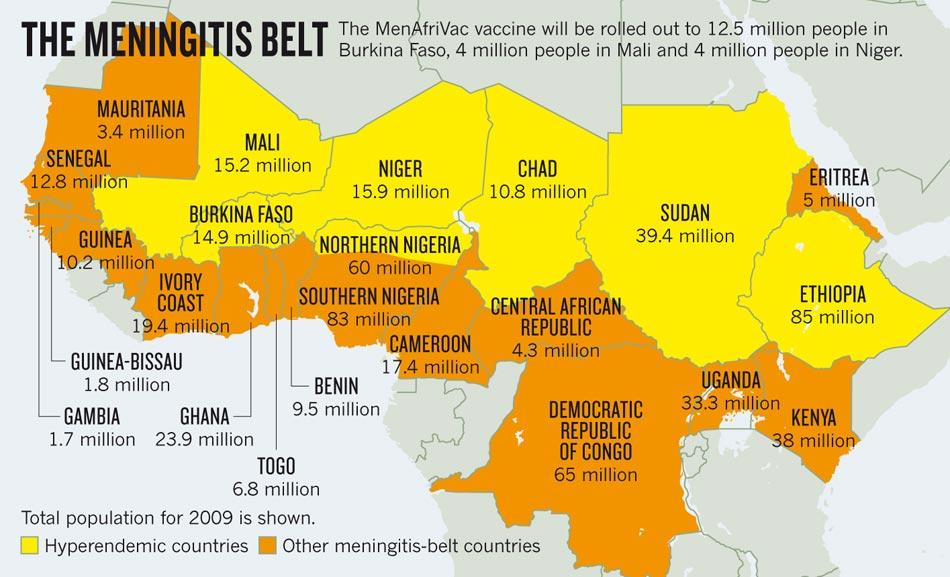 Meningitis Belt, in Africa
Meningitis Belt, in Africa
